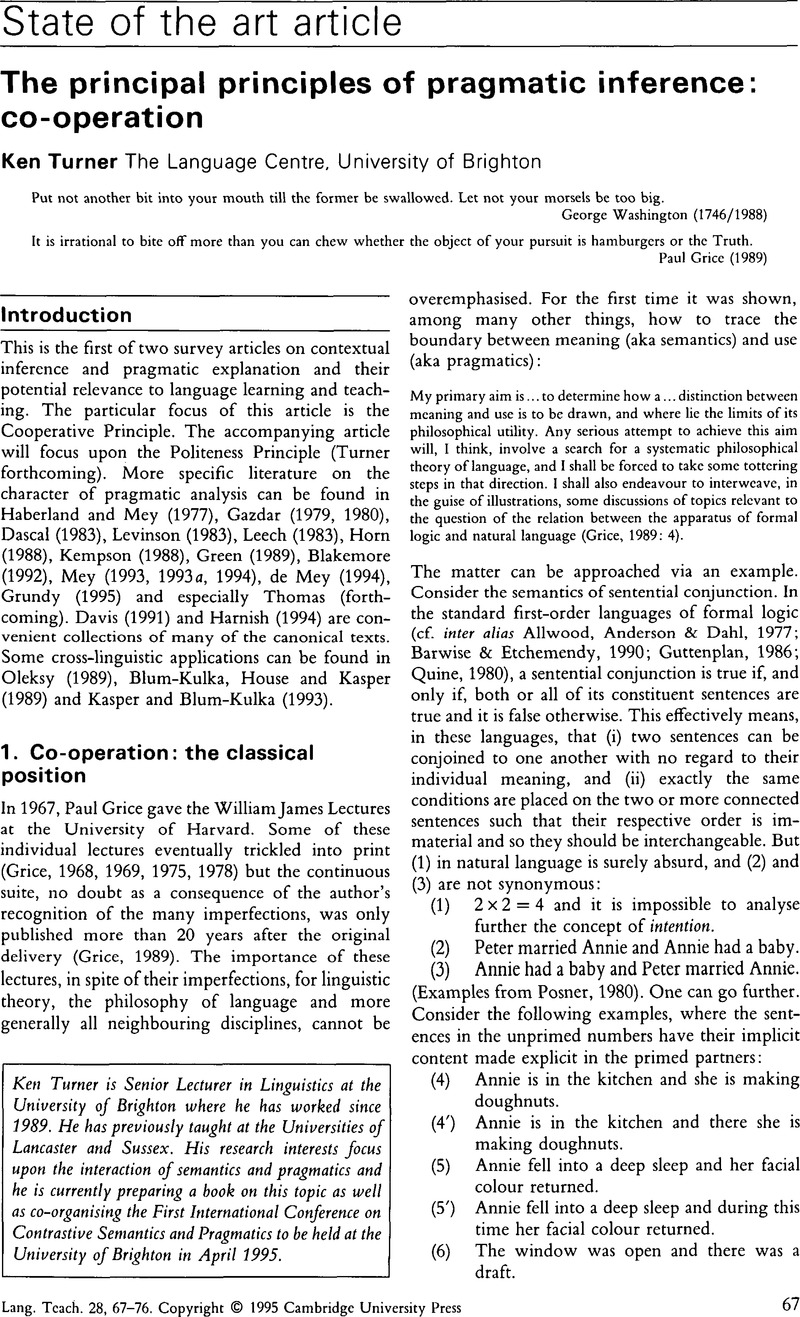Crossref Citations
This article has been cited by the following publications. This list is generated based on data provided by Crossref.
Turner, Ken
1996.
The principal principles of pragmatic inference: politeness.
Language Teaching,
Vol. 29,
Issue. 1,
p.
1.
Turner, Ken
1996.
Doing Pragmatics by Peter Grundy, 1995, Edward Arnold, London/New York, pp. vii + 216, ISBN 0 340 62514 7.
Language and Literature: International Journal of Stylistics,
Vol. 5,
Issue. 2,
p.
135.
Meibauer, Jörg
1997.
Pragmatik.
p.
226.
Bing‐zhang, Wu
2010.
Stereotypical Relations and Utterance Understanding: An Introduction to Xu Sheng‐Huan’s Stereotypical Relation‐Based Approach to Pragmatics.
Language and Linguistics Compass,
Vol. 4,
Issue. 1,
p.
27.
Kim, Hye-Jeong
2011.
A Pragmatic Study of Conversations in Movies and Textbooks.
STEM Journal,
Vol. 12,
Issue. 1,
p.
3.


